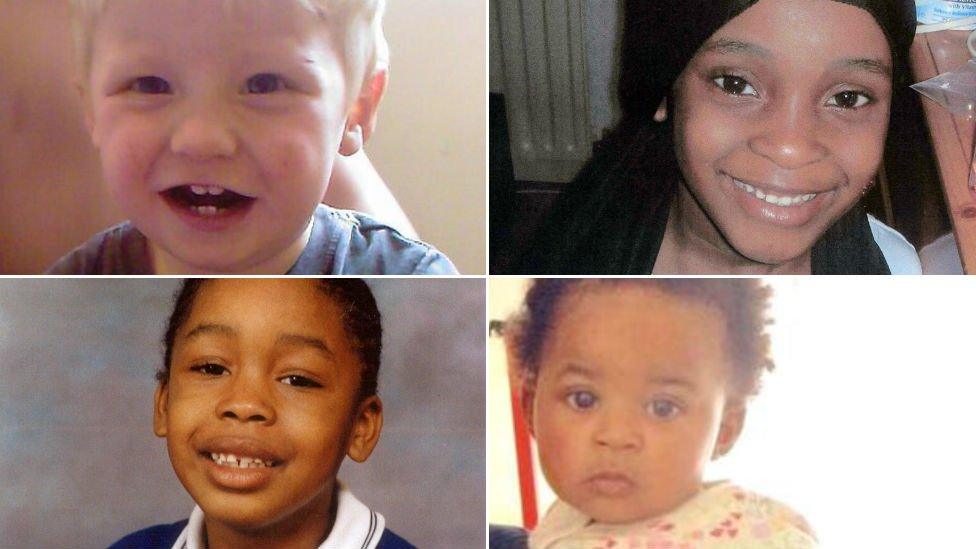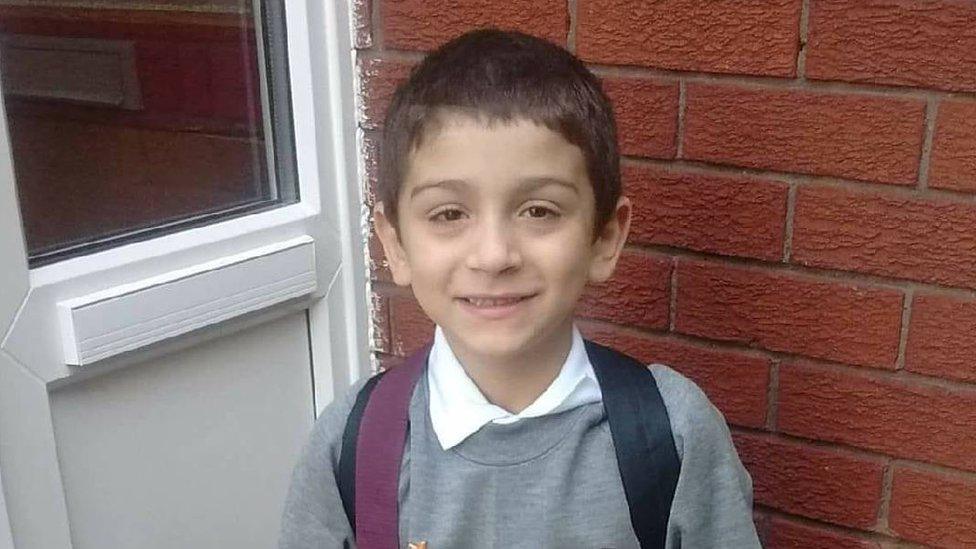Children's services improvements satisfy government

The government has been monitoring improvements to Birmingham's children's services for a decade
At a glance
Improvements to children's services in Birmingham will no longer be monitored by the government
Ofsted rated children's services as good after years of being inadequate
The Department for Education has been demanding and monitoring improvements at the council since 2013
It has now revoked its improvement direction after being satisfied with progress
- Published
Government intervention in children's services once branded a "national disgrace" has come to an end.
The Department for Education (DfE) has been monitoring improvements in Birmingham for 10 years after children in the council's care came to serious harm.
However after Ofsted rated Birmingham Children's Trust as "good" in April the government said it was "delighted" with the changes.
Councillor Karen McCarthy said it was "a significant milestone and testament to the hard work of everyone across the Trust and council".
Birmingham Children's Trust was established in 2018 by the city council to improve services which had been failing for years.
It came about after more than a dozen children known to the authorities died, sparking serious questions for the city's social services.
They included Toni-Ann Byfield, who was shot dead aged seven in 2003, another seven-year-old, Khyra Ishaq, who starved to death in Handsworth in 2008 and two-year-old Keanu Williams beaten to death by his mother in 2011.
Keegan Downer, an 18-month-old old girl murdered by her guardian, was "almost invisible to professionals", a report into her death in 2017 said.

Clockwise from top left: Keanu Williams, Khyra Ishaq, Keegan Downer and Toni-Ann Byfield
In 2013 Ofsted singled out Birmingham's children's services as "a national disgrace" and the authority was handed a direction for improvement, meaning it had to cooperate with the government to make changes.
A decade on, Andrew Warren, the DfE's regional director for the West Midlands, wrote to the council and children's trust, external to say the direction had been revoked.
However he added that representatives would still be expected to attend regular meetings and the DfE would retain a close relationship with the authorities.
Analysis
By Rob Mayor, BBC WM political reporter
Birmingham City Council was judged to be inadequate at safeguarding children as far back as 2008, following the death of seven-year-old Khrya Ishaq who starved to death at the hands of her mother and stepfather.
In the following years, more than a dozen children died despite being known to the authorities and by 2016 it was announced the service would be run by a trust.
At the time staff morale was rock bottom, but last month Ofsted finally rated the service as good saying there had been "much progress".
As Europe’s largest local authority dealing with complex safeguarding cases, nobody can be sure there won’t be more mistakes, but this decision means the government is now satisfied that children in Birmingham are as safe as they have been in many years.

Andy Couldrick will step back from his role as chief executive of Birmingham Children's Trust
Birmingham Children's Trust said the improvements were a result of "extraordinary hard work" but said it recognised there was always more to do.
It also announced that its chair Andrew Christie and chief executive Andy Couldrick would now step down.
"It has been the privilege of my professional career to come to Birmingham, to assemble and then to lead the Children’s Trust through its first five years," said Mr Couldrick, who will stay on as chair.
"We have made great progress, thanks to the commitment and excellence of the leaders, managers and staff right across the Trust."
Related topics
- Published18 April 2023

- Published1 September 2022

- Published2 March 2023

- Published22 April 2022

- Published17 January 2019

- Published24 May 2016
